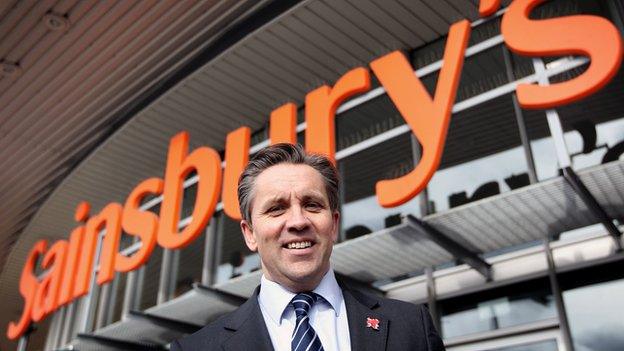Sainsbury's mothballs shop plans and reports fall in sales
- Published
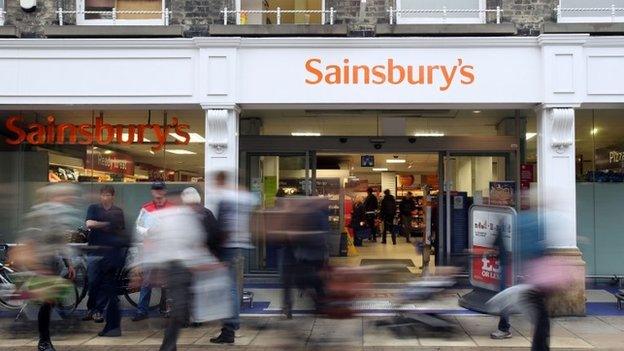
Sainsbury's expects like-for-like sales in the supermarket sector to be negative "for the next few years"
Sainsbury's has reined back plans for new stores and said the change in plans has affected its balance sheet.
The supermarket chain took a charge of £287m because some sites will no longer be developed.
The firm reported a half-year loss before tax of £290m and said that like-for-like sales had fallen 2.1% during the period.
It expects like-for-like sales in the sector to be negative "for the next few years".
The new chief executive of Sainsbury's, Mike Coupe, explains the decision
"We anticipate the next couple of years in our industry will be extremely challenging," Sainsbury's chief executive Mike Coupe told BBC Radio 4's Today programme.
"The reality is we are seeing deflation for the first time in probably around 10 years," he said.
A change in shopping habits was affecting supermarket sales, Sainsbury's added.
People were shopping more frequently and using online, convenience and discount retailers more, it said.
Sainsbury's said it had "robust plans to address this challenge", including investing £150m in price cuts.
After an initial spike, Sainsbury's shares were down over 5% at one point in morning trading before recovering to end at 266p, giving a 1% loss on the day.
Charges
In the half-year, Sainsbury's said it had taken total one-off charges of £633m, including £287m for altering its store opening plans.
"We are acknowledging we are not going to build out as many large supermarkets as we were anticipating, so that results in the fact that the land becomes less valuable," Mr Coupe said.
About 40 supermarket developments across the UK will now not go ahead, the BBC understands.
The firm also took a charge of £341m in relation to existing unprofitable and marginally profitable trading shops.
Price war
Supermarkets in the UK are engaged in a bitter price war that has pushed the grocery market into deflation, according to October figures from market research firm Kantar Worldpanel.
Sainsbury's lost market share to rivals including fellow supermarket giant Asda and discounters Aldi and Lidl, Kantar said.
As part of its strategy to take on rivals, Sainsbury's said it would reduce spending and profitability.
The company will maintain its dividend at 5p per share for the current year.
It will reduce capital expenditure to between £500m and £550m a year over the next three years.
Sainsbury's will continue to devote more of its store space to non-food items, including clothing, cookware, homeware and seasonal products.
In addition, it will open 500,000 sq ft of space over the next two years and 350,000 sq ft in its 2017-18 year.
New space will include eight new supermarkets over the next three years, as well as four redevelopments of existing stores.
- Published6 November 2014

- Published1 October 2014
- Published1 October 2014
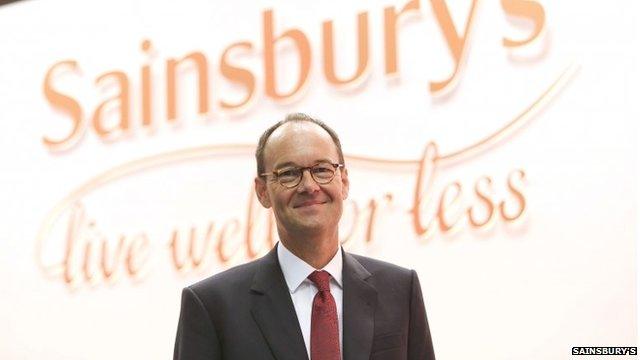
- Published30 September 2014
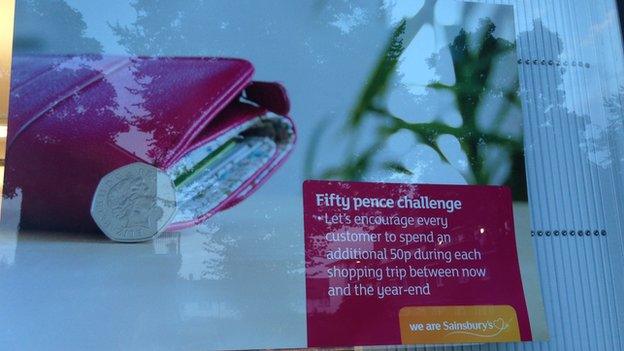
- Published11 June 2014
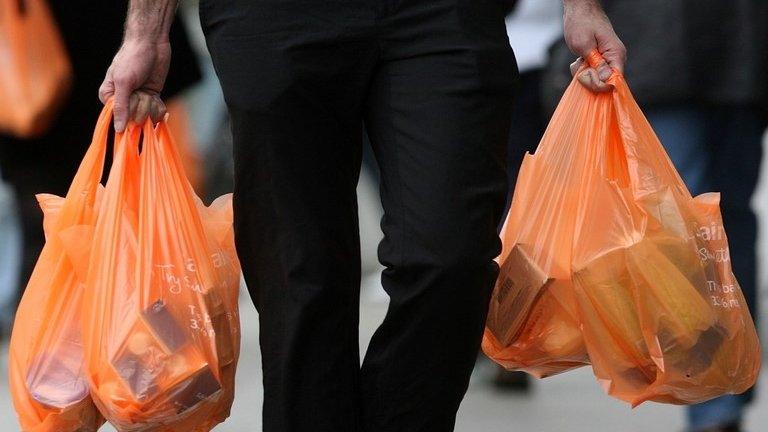
- Published25 February 2014
